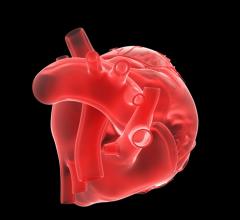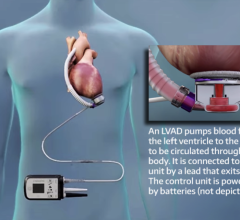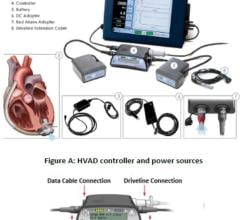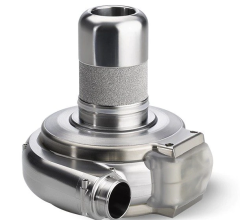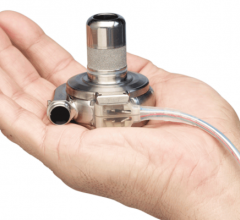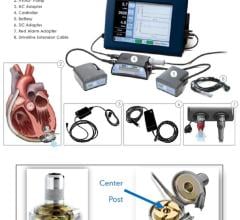
January 27, 2012 — A miniature, battery-free, wireless, cardiac implant being developed by a University of Michigan researcher and the Ann Arbor, Mich., company Integrated Sensing Systems, Inc. (ISSYS), has received funding that could get it to patients more quickly.
A $1.5 million grant from the National Institutes of Health (NIH) will help a research team, led by Martin Bocks, M.D., and ISSYS, to complete the final preclinical testing required before seeking approval under the U.S. Food and Drug Administration's (FDA) Humanitarian Device Exemption pathway.
"We are extremely excited to continue working with ISSYS to develop a wireless, implantable pressure sensor for our patients with complex forms of congenital heart disease," said Bocks, the project's medical principal investigator, and pediatric cardiologist at the University of Michigan Congenital Heart Center and the U-M C.S. Mott Children's Hospital.
"This pressure sensor has the potential to greatly improve the care we provide to our most complex patients and will provide us with unprecedented opportunities to learn more about their unique physiology. We appreciate the NIH and the National Heart Lung and Blood Institute (NHLBI) for their willingness to fund research on patients with rare, severe forms of congenital heart disease."
Bocks and his team at U-M have been working on this device – intended for use in infants and children -- for three years. The 2.5-year grant will help test a device that will reduce the need for invasive cardiac catheterization procedures and provide a better understanding of congenital heart disease.
The device is a wireless, battery-free, miniature pressure sensor that is implanted within a heart chamber. Once implanted, doctors can measure pressure inside the heart while the patient is being seen in the outpatient clinic without having to do a heart catheterization. In the future, such monitoring may be performed remotely or from home.
The device, which would stay in place permanently, is initially planned for use in patients with functional single ventricle conditions, such as hypoplastic left heart syndrome. It could be used in other forms of pediatric and adult heart disease in the future.
"We hope it would be going to market by year 2013," Bocks says. "We expect the device to decrease the number of heart catheterizations, help doctors better monitor the effects of medications, and provide early detection for conditions such as blood clots in lungs."
For more information: www.mems-issys.com


 June 19, 2024
June 19, 2024 
